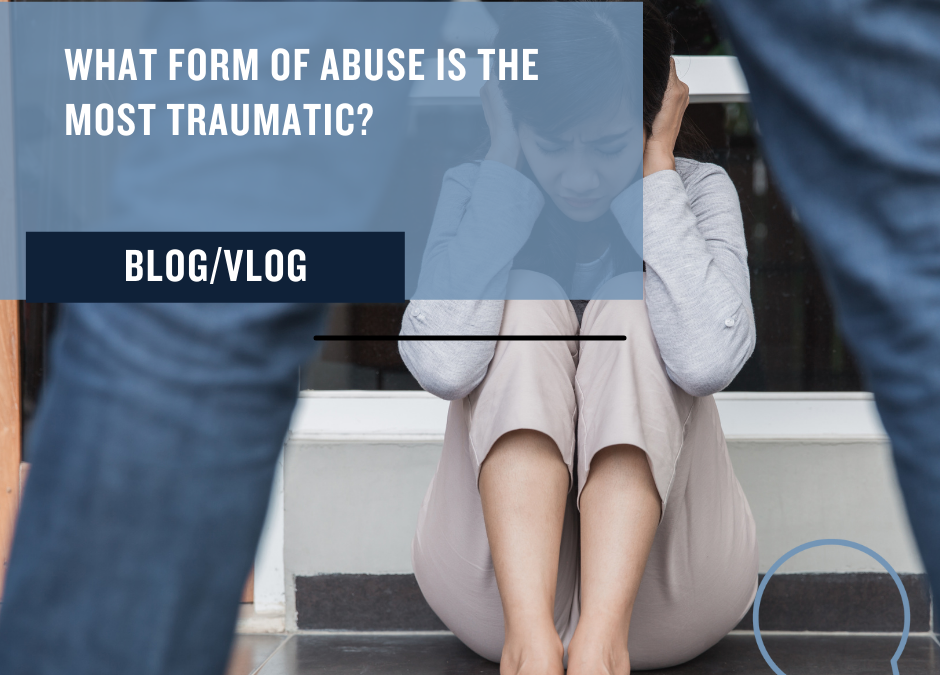In Canada, November is National Domestic Violence Awareness month. Since I’ve been writing about trauma lately, I thought I’d discuss trauma in the context of domestic violence and share what I’ve learned from working in both of these areas.
Which Form of Abuse is Most Traumatic?
My first practicum as a Ph.D. student was providing one-to-one therapy and co-facilitating psychotherapy groups for men charged with domestic violence.
One of the exercises I did with group participants was to ask them what form of abuse they thought was the most severe and what form of abuse was the least severe.
I would then write their responses on a whiteboard, with the most severe form of abuse on the left and the least harsh on the right. The answers would look something like this:
Sexual abuse —> Physical abuse —> Verbal abuse —> Psychological abuse —> Financial abuse —> Spiritual abuse (using religion to control a partner)
The next question I asked participants was about the impact these different forms of abuse would have on the victim.
“How does the victim of sexual abuse feel?” Here are what some of the men would say:
- Afraid, ashamed, depressed, humiliated, helpless.
Then I would ask participants how the victim of financial or spiritual abuse might feel (what they identified as the least severe). Here’s what they would say:
- Afraid, ashamed, depressed, humiliated, helpless.
After writing their answers on the board, participants usually had what therapists call an “a-ha” moment. That is, participants realized something about abuse they had never thought about before.
Abuse is Abuse, Regardless of Type
After identifying the victim’s emotional experience, participants realized – as clear as the black marker on a whiteboard – that the impact of abuse on the victim was the same, regardless of the type of abuse.
In other words, participants realized that the impact of sexual abuse on the victim was similar to the effects of emotional, verbal, or spiritual abuse.
One can argue the same thing about those who live through trauma.
Trauma is Trauma, Regardless of Type
Yes, there are traumatic events that may seem worse than others—for example, having your wallet stolen versus surviving a severe car crash.
What’s most important to remember, though, is how the trauma impacts the person.
Someone might be able to quickly overcome the impact of a severe car wreck, while the victim of a mugging might feel traumatized for weeks and weeks. It all depends on the individual.
So, what is the worst kind of trauma?
There is no clear answer to this question. Rather than ranking/categorizing/judging the different types of trauma, we need to focus on trauma’s impact on the victim.
Whether it’s physical abuse, verbal, psychological, or spiritual abuse, the victim is traumatized just the same.
That’s what this week’s video is all about.
Hoping this knowledge helps with your awareness and growth.
Richard

